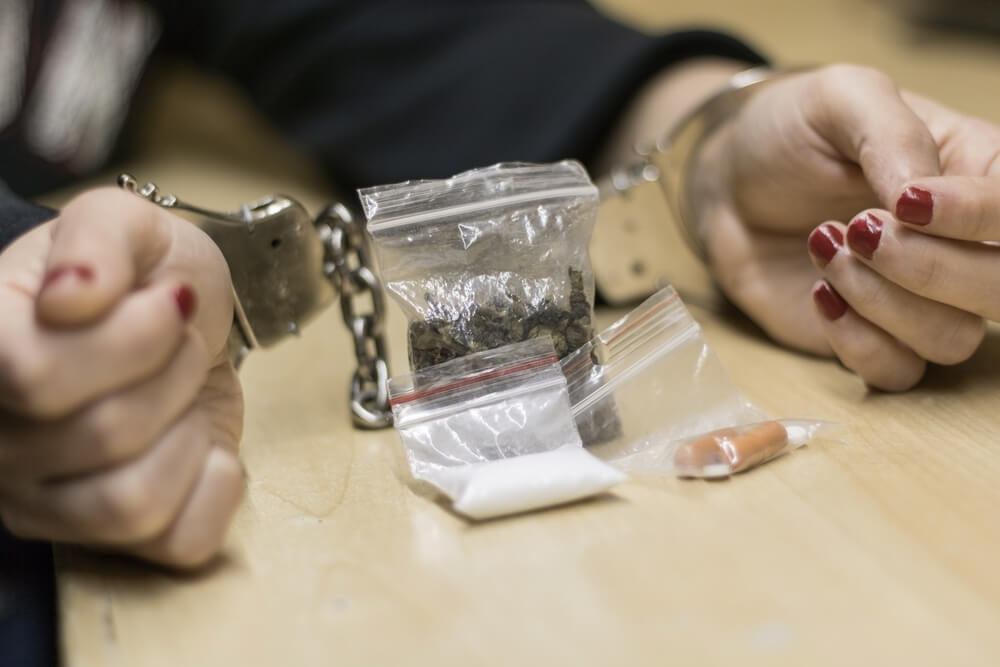
Types of Drug Possession that can get You Charged in Monmouth County
Without question, one of the more frequently charged criminal offenses in New Jersey is the Possession of a Controlled Dangerous Substance (CDS). Although drug offenses are certainly more common in certain municipalities within Monmouth County, as a whole, they are not immune to this offense. Drugs have been a constant problem for society since the beginning of time and there is no end in site. When it comes to a possession of CDS case there are various different legal theories that the prosecution can use in an attempt to convict an individual. As one has probably already assumed, there are countless cases whereby multiple individual’s are charged with “possessing” the same exact drug. Probably the four most common theories that the prosecution will look to use when it comes to a drug possession case in New Jersey are as follows: Joint Possession, Constructive Possession, Actual Possession and Conspiracy to Possess. For the most part, a conviction under anyone of these theories will result in the same type of exposure.
The stigma alone surrounding a drug possession charge can have a significant impact on an individual’s life let alone what an indictable (felony) conviction would do. Due in large part to widespread legalization of most marijuana offenses, almost every drug possession cases in New Jersey will be classified as an indictable offense, which is New Jersey’s version of a felony. If you need a consultation for a drug case in Monmouth County, including for offenses like the possession of heroin, the possession of Oxycontin, the possession of Cocaine, the Possession of Steroids or the possession of MDMA please contact our office at 732-858-6959 and one of our attorneys would be glad to discuss your options. When it comes to defending drug possession cases the different defenses can be voluminous. We serve all of Monmouth County, including towns like Wall Township, Holmdel, Middletown, Freehold, Manalapan, Marlboro, Ocean Township, Asbury Park, Long Branch and Keyport. Now here is some important information on types of possession cases in New Jersey.
What You Need to Know About Actual Drug Possession Cases in New Jersey
When it comes to proving a Drug Possession cases in Monmouth County, one of the prosecution’s theories could be what is known as “actual possession.” In other words, the individual was caught “red handed” possessing the CDS. This normally occurs following an officer’s search of an individual’s “persons” meaning their body. When this occurs, the prosecution will need to prove the following:
- That the Defendant knows that the item they possessed was CDS (knowledge of its character); &
- That they knowingly had the CDS on their person at a given time
To simplify it, the prosecution must prove that the Defendant was aware that the item they possessed was a form of CDS and that they had direct control over the CDS. It will not be a defense to this theory that the Defendant thought they were possessing a specific CDS but it turned out that it was another CDS. For example, if the Defendant was under the believe that he had purchased a deck of heroin but in reality it was Fentanyl not heroin. This is one of easier theories for a prosecution. Most defenses under this legal theory will revolve more around challenge the search or any statements made by the Defendant that lead to the search.
Understand What the Prosecution Must Prove on a Constructive Drug Possession Charge in Freehold
Constructive Possession cases can prove to be problematic for the prosecution. Under this theory, the CDS in question was not actually possessed by the Defendant. Under this theory the prosecution will be seeking to use circumstantial evidence in essence to prove that the Defendant had the ability and desire to actually possess the CDS even though they were not caught possessing the drugs. A common fact pattern that we see when it comes to constructive possession cases involves when a search is conducted, whether it be a search of an individual’s car following a motor vehicle stop or a search of an individual’s house, whereby drugs are located by they are not found specifically on the individual’s persons. Under a constructive possession theory, the prosecution must prove the following:
- The Defendant had knowledge that the CDS was present (knowledge of its character)
- That the knowingly had the power and the intention at a given time to exercise control over it.
- The ability for the Defendant to exercise control over it can be either directly or through another person or persons.
In an effort to simplify it, under a constructive possession theory, the individual does not physically have the CDS on their persons but is aware that the CDS is present and they have the ability and the intention to exercise control over it. Under this theory the amount of defenses can be endless. It is important to note here that the mere presence at a location where the CDS is discovered is not enough to obtain a conviction under this theory. The prosecution will need to establish more than simple the Defendant was at the location where the CDS was found.
Can the Prosecution Really Prove that Two Individual’s Possessed the Same Drug in NJ?
Yes, under the theory of Joint Possession, the prosecution can seek to prove that two individual’s possessed the same exact CDS. Under this legal theory, the prosecution will need to prove that the two defendant’s possessed the CDS actually or constructively. In other words, they would be using one of the two above theories to establish possession but they will be seeking to prove that both defendant’s had the same mindset. For a multitude of reasons this can be prove to be problematic. With that being said, if both Defendant’s were to be convicted under this theory, they both would be facing the same penalties. In other words, the severity of the charge does not lesson, nor would the specific quantity of the CDS.
What Does it Mean to Conspiracy to Possess CDS in New Jersey?
When it comes to conspiracy to possess CDS the prosecution is conceding that they cannot prove that the Defendant actually or constructively possessed the CDS in question but that they had an “agreement” to possess the CDS. Basically, that the Defendant did not get the opportunity to possess the CDS but they had the intention to. There are really two types of conduct that can lead to a Defendant being charged with Conspiracy to Possess Drugs in New Jersey. In order to prove this type of charge, the prosecution must prove the following set of elements beyond a reasonable doubt:
- That the Defendant agreed with another person or persons that they or one or more of them would actually or constructively possess a Controlled Dangerous Substance; OR
- That the Defendant agreed to aid another person or persons in the planning or commission of actually or constructively possessing a CDS; &
- That the Defendant had the purpose was to promote or facilitate the possession of the CDS; &
- That the Defendant or a person with whom he/she conspired did an overt act in pursuance of the conspiracy.
In order to prove this type of case, the prosecution will need to establish that an agreement was in place between two or more individual’s to commit a specific act (possession) and that one or more of those individual’s engaged in a overt act to facilitate the commission of the crime.
Legal Help if You have been Accused of Drug Possession in Monmouth County
Being labeled as a convicted felon for possessing a controlled dangerous substance, regardless of the substance will almost certainly have an impact on an individual’s life moving forward. As such, at Keith Oliver Criminal Law, our attorneys are dedicated to aggressively defending drug cases, including the possession of drugs, the distribution of drugs and the manufacturing of drugs in Courts throughout New Jersey, including in Monmouth County. If you would like to speak to one of our attorneys about your options, please contact our Middletown office at 732-858-6959. One of our attorneys would be glad to go over the specifics of your cases and formulate a game plan as to how to best defend the allegations. Our office serves all of Monmouth County, including towns like Hazlet, Red Bank, Colts Neck, Little Silver, West Long Branch, Howell, Matawan and Aberdeen. To schedule an appointment today or receive a free consultation over the phone, please contact our office at 732-858-6959 or you can try contacting us directly online.

